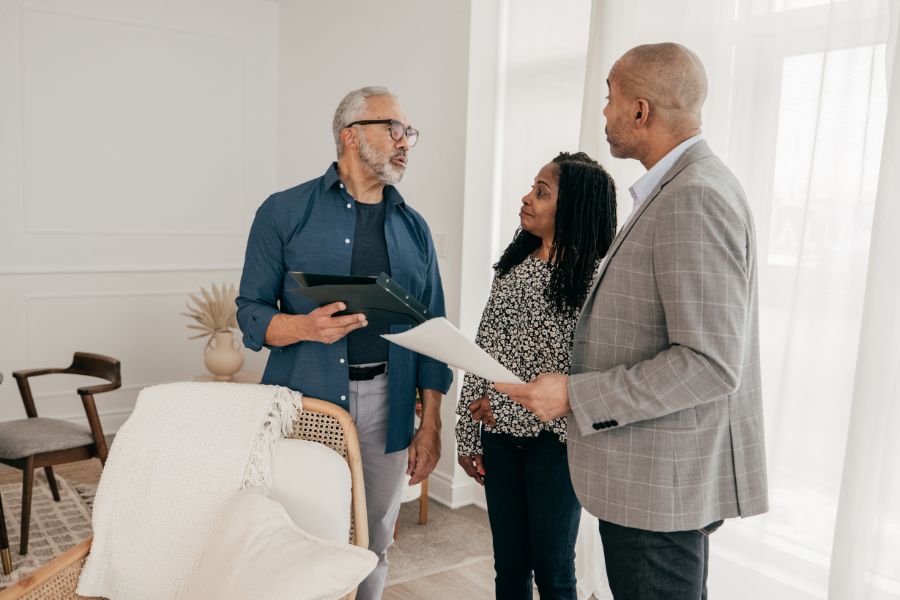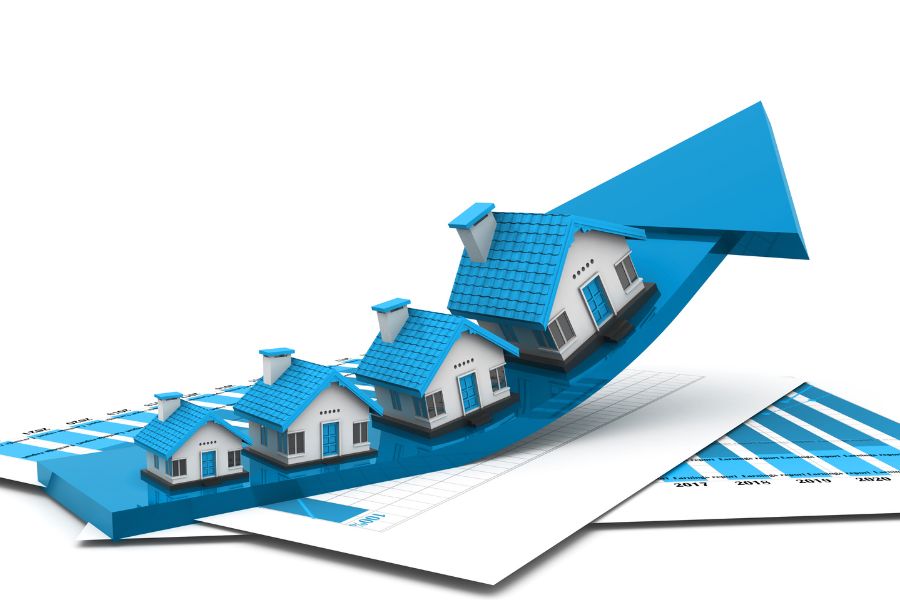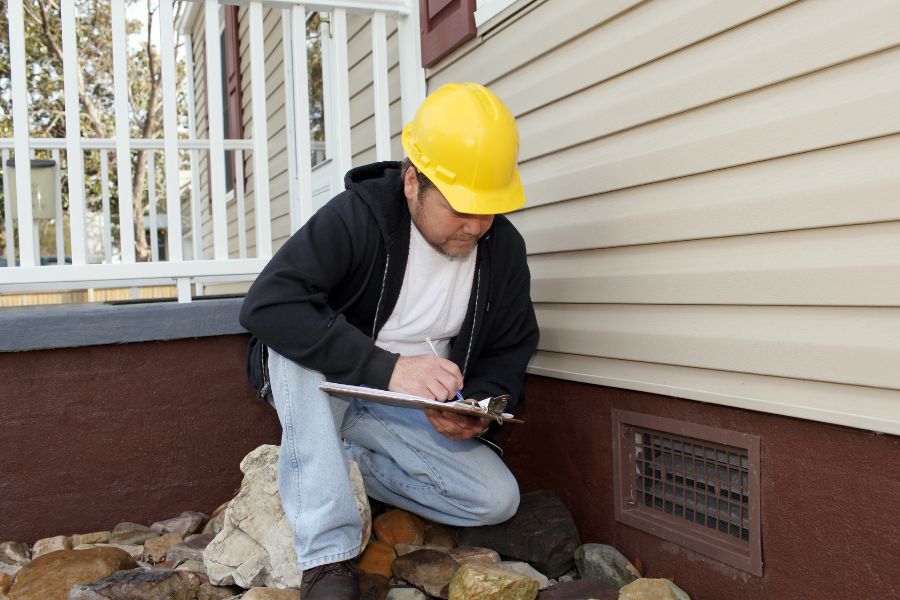Key Takeaway
Selling your home is a significant financial and emotional decision, and with the right approach, you can make the process a rewarding and successful one.
This comprehensive guide empowers you with the knowledge and tools to sell your home like a pro.
By understanding the real estate market, preparing your home for sale, utilizing effective marketing strategies, and mastering the art of negotiation, you can attract potential buyers, secure the best deal, and confidently close the sale.
Remember, each step is crucial, from enhancing curb appeal to handling legal and financial considerations.
So, get ready to embark on your home-selling journey with confidence and make the most out of this significant life event.

Introduction
Selling your home can be a challenging and overwhelming process. However, with the right strategies and knowledge, you can navigate the real estate market like a pro and ensure a successful home sale.
This comprehensive guide is designed to equip you with the essential tips, tricks, and insights to make your selling journey a smooth and profitable one.
Understanding the Real Estate Market
To sell your home effectively, it's crucial to have a clear understanding of the current real estate market. By analyzing market trends, you can make informed decisions about pricing and marketing your property for maximum impact.
Preparing Your Home for Sale
Before listing your home, it's essential to prepare it to attract potential buyers. This section covers everything from enhancing curb appeal to making necessary repairs and upgrades to ensure your home is in top-notch condition.
Enhancing Curb Appeal
The old adage "first impressions matter" holds especially true when it comes to selling your home. Enhancing curb appeal is one of the most impactful ways to make a positive first impression on potential buyers and set the stage for a successful home sale. It involves beautifying and improving the external appearance of your property, creating a welcoming and attractive facade that entices buyers to step inside and explore further.

A well-maintained and visually appealing exterior can significantly increase the perceived value of your home in the eyes of potential buyers. When prospective buyers drive up to your property, their first glimpse of the well-manicured lawn, neatly trimmed bushes, and a freshly painted front door can instantly create a sense of desirability and curb appeal.
One of the key benefits of enhancing curb appeal is the immediate impact it has on the marketability of your home. A visually appealing exterior makes your property stand out in a competitive real estate market, attracting more potential buyers and generating increased interest.
As buyers approach your home, they begin to envision themselves living there, and a well-maintained exterior can instill confidence that the interior is equally well-cared-for.
Moreover, curb appeal can also affect the emotions of potential buyers. A beautiful and inviting exterior can evoke positive feelings, making potential buyers more emotionally invested in the property from the moment they arrive. This emotional connection can play a crucial role in their decision-making process and may sway them towards making an offer.
Simple and cost-effective improvements, such as freshening up the paint, cleaning the windows, and tidying up the landscaping, can make a significant difference. Strategic use of outdoor lighting can also add a touch of elegance, creating an inviting ambiance during evening showings.
It's essential to consider the local context when enhancing curb appeal. Align the aesthetics of your home with the neighborhood's overall style to create a sense of harmony. Over-improving your property beyond what's typical for the area may not yield a positive return on investment.

In conclusion, enhancing curb appeal is a critical aspect of preparing your home for sale. By investing time and effort in creating a visually appealing and inviting exterior, you can capture the attention and hearts of potential buyers, increasing the chances of a successful sale at a favorable price. Remember, the first impression is the lasting impression, and a well-curated curb appeal can be the gateway to unlocking the full potential of your home in the real estate market.
Home Staging Tips
Home staging is an artful and strategic approach to preparing your home for sale, designed to showcase its best features and create an irresistible allure to potential buyers. By depersonalizing and decluttering, rearranging furniture, and adding tasteful decor, home staging transforms your property into a welcoming and aspirational space, making it easier for buyers to envision themselves living there.
The primary goal of home staging is to create a neutral and universally appealing environment that resonates with a broad range of buyers. Removing personal items and clutter allows buyers to focus on the home's unique attributes rather than the current owner's belongings. Additionally, strategic furniture placement and thoughtful decor arrangements can emphasize the home's layout and flow, highlighting its functionality and potential.
The impact of home staging on the buyer's perception of the property cannot be underestimated. A staged home exudes a sense of sophistication and care, which can instill confidence in buyers that the property has been well-maintained and is ready for immediate occupancy. This emotional connection can lead to a faster sale and potentially even multiple offers.
Furthermore, professional photography and virtual tours of a staged home can make a significant difference in online listings, attracting more attention and increasing click-through rates. In today's digital age, the first impression often happens online, and a beautifully staged home can captivate potential buyers and entice them to schedule a viewing.
Discover the art of home staging and how it can transform your property into a captivating space that appeals to a broad range of buyers.

Home staging is an investment that typically yields a high return. While the cost of staging varies depending on the size of the home and the extent of the staging, it's well worth the expense considering the potential benefits. Staged homes often sell faster and at higher prices compared to vacant or non-staged properties.
Home staging is a powerful marketing tool that can elevate your home's appeal and create a lasting impression on potential buyers. By presenting your property in the best possible light, home staging maximizes its potential and increases the likelihood of a swift and successful sale. Whether it's through in-person showings or captivating online listings, the art of home staging can make all the difference in securing the right buyer and achieving your selling goals.

Repairs and Upgrades
When preparing your home for sale, addressing necessary repairs and strategic upgrades can significantly impact its overall appeal to potential buyers. Start by conducting a thorough inspection to identify any issues that need attention.
Focus on repairs that are visible and essential, such as fixing leaky faucets, patching up wall imperfections, and replacing broken fixtures. Next, consider strategic upgrades that can add value to your home.

Updating outdated features, like kitchen appliances or bathroom fixtures, can make a considerable difference in the buyer's perception of your property.
Keep in mind that while repairs and upgrades may require an upfront investment, they can pay off in the form of higher offers and a faster sale.
Setting the Right Price
Determining the appropriate price for your home is a crucial step in the selling process. It requires a careful balance between attracting buyers and getting the best possible value for your property.
Begin by conducting a thorough market research and analysis to understand the current trends and comparable properties in your area. Working with a knowledgeable real estate agent can also be invaluable in setting the right price.
They can provide insights into the local market, recent sales data, and competitive pricing strategies. Avoid the temptation to overprice your home, as this may deter potential buyers and prolong the selling process. On the other hand, pricing too low may undervalue your property.
Striking the right balance is essential to attract interested buyers and create a competitive environment that may lead to multiple offers.
Market Research and Analysis
Conducting thorough market research and analysis is a critical step in the home selling process. Understanding the pricing dynamics and trends in your local real estate market will enable you to set a competitive price for your home. Pricing your home correctly is essential to attract potential buyers and increase the likelihood of a successful sale.
Begin by researching recent sales data of comparable properties in your area. These properties, often referred to as "comps," should be similar to your home in terms of size, features, and location. Look for properties that have sold within the past few months, as this will give you the most up-to-date information.

Pay attention to both the sale prices and the time the properties spent on the market. This data will provide valuable insights into the current demand and the appropriate pricing range for your home.
Additionally, consider the current market conditions. Is it a buyer's market, where there are more homes available for sale than buyers looking to purchase? Or is it a seller's market, with limited inventory and high demand from buyers?
Understanding the market conditions will influence your pricing strategy. In a buyer's market, you may need to price your home more competitively to attract buyers. In a seller's market, you may have more flexibility in setting a higher price.
While online real estate platforms can provide some basic information on recent sales, working with a real estate agent can offer a more in-depth and personalized analysis.
Market Data from Local Real Estate Agent
A knowledgeable agent will have access to a comprehensive database of recent sales and can provide a comparative market analysis (CMA) tailored to your home's specific attributes. They can help you interpret the data and guide you in making informed decisions about pricing.
Remember that setting the right price is a delicate balance. Pricing too high may deter potential buyers and result in a prolonged time on the market. Conversely, pricing too low may undervalue your property and lead to missed opportunities for a higher sale price.
By conducting thorough market research and analysis, you can position your home competitively in the local market, increasing the chances of attracting serious buyers and achieving a successful and timely sale.

Working with Real Estate Agents
Explore the benefits of working with real estate agents and how their expertise can assist you in determining the best price for your home.
Marketing Your Home
Effective marketing is essential to ensure that your home reaches a wide audience of potential buyers. Creating an impactful listing is the first step in the marketing process. Craft a compelling description that highlights your home's unique features and appeals to the target demographic.
Utilize professional photography to showcase your property in the best light and make it stand out online. High-quality images can pique buyers' interest and encourage them to schedule showings.

Additionally, consider utilizing social media platforms to reach a broader audience. Engage with potential buyers through interactive posts, virtual tours, and live Q&A sessions. Social media can also be a powerful tool for sharing positive testimonials from previous satisfied buyers.
A comprehensive marketing strategy that encompasses both online and offline channels can significantly increase the visibility of your home and lead to a faster and more successful sale.
Creating an Effective Listing
Craft a compelling property listing that highlights the unique features of your home and captures the attention of potential buyers.

Utilizing Professional Photography
Discover the power of professional photography in making your home stand out online and in promotional materials.
Social Media Strategies
Harness the potential of social media platforms to reach a broader audience and create a buzz around your property.
Attracting Potential Buyers
Attracting potential buyers is a crucial aspect of the home selling process. Hosting open houses is an effective way to showcase your property to multiple buyers at once. Prepare your home by decluttering, deep cleaning, and adding some fresh flowers or plants for a welcoming touch.
Consider creating virtual tours to provide interested buyers with a comprehensive view of your property from the comfort of their homes. Virtual tours can appeal to out-of-town buyers or those who prefer to limit in-person visits. When dealing with home showings, make the process as convenient as possible for potential buyers.
Be flexible with scheduling and ensure that your home is in pristine condition for each showing. The more accommodating you are to potential buyers, the more likely you are to receive serious offers and close the deal successfully.
Hosting Open Houses
Learn how to host successful open houses that allow potential buyers to envision themselves living in your home.

Showcasing Virtual Tours
Explore the benefits of virtual tours and how they can provide a comprehensive view of your home to interested buyers.
-Dealing with Home Showings
Get tips on how to prepare your home for showings and make the best impression on potential buyers.
Navigating the Negotiation Process
Navigating the negotiation process with potential buyers requires skill and finesse. Understanding the buyer's perspective is key to successfully negotiating a deal that works for both parties.
Put yourself in the buyer's shoes to identify their motivations and priorities. Be open to counteroffers and remain flexible to reach a mutually beneficial agreement.
Focus on building rapport and maintaining clear communication throughout the negotiation process.

Consider working with a real estate agent who can negotiate on your behalf and provide valuable insights into the negotiation process.
They can advocate for your interests and help you secure the best possible outcome.
Understanding Buyer's Perspective
Gain insights into the buyer's perspective and use this knowledge to negotiate from a position of strength.
Counteroffers and Bargaining
Learn how to handle counteroffers and navigate the bargaining process with confidence.
The Art of Closing the Deal
Closing the deal is the final step in selling your home and requires careful attention to detail. Reviewing offers and terms is essential to ensure you fully understand the buyer's offer and the conditions of the sale.
Take the time to assess the financial strength of the buyer and any contingencies they may have. Be prepared to provide necessary documentation and information to facilitate a smooth closing process.
Handling home inspections is another critical aspect of closing the deal.
Address any issues that arise during the inspection promptly and professionally. This can help build trust with the buyer and demonstrate your commitment to a successful transaction.

By navigating the closing process with diligence and professionalism, you can finalize the sale and hand over your home to its new owners.
Reviewing Offers and Terms
Learn how to evaluate offers and review the terms to make informed decisions during the closing process.
Handling Home Inspections
Understand the significance of home inspections and how to address any issues that may arise during this phase.
Legal and Financial Considerations
Selling a home involves several legal and financial considerations that should not be overlooked. Before proceeding with the sale, familiarize yourself with the necessary legal documents and disclosures required in your area.
Working with a real estate agent or attorney can help ensure that you are in compliance with all legal requirements. Additionally, consider the tax implications of selling your home.
Depending on your location and circumstances, there may be capital gains tax or other tax considerations to take into account. Understanding the financial implications of the sale can help you make informed decisions and plan accordingly.
Legal Documents and Disclosures
Discover the necessary legal documents and disclosures that are required when selling your home.
Tax Implications
Understand the tax implications of selling your home and how to make the most of potential tax benefits.

Finalizing the Sale
As you near the final stages of the sale, there are crucial steps to complete to ensure a smooth closing process. Choosing a reputable title company is essential to handle the legal transfer of ownership and protect the interests of both parties.
A title company will conduct a title search to ensure there are no liens or encumbrances on the property that could affect the sale. They will also issue title insurance to protect the buyer and lender from any potential title defects. The closing process involves signing the necessary paperwork, including the deed, bill of sale, and other closing documents.
The title company will oversee the disbursement of funds and the transfer of ownership to the buyer. By choosing a reliable and experienced title company, you can finalize the sale with confidence and ensure a successful conclusion to the home selling process.
Choosing a Title Company
Learn about the role of a title company and how to choose the right one for a seamless closing process.
The Closing Process
Get an overview of the closing process and what to expect during this significant event.

FAQs
What are the best times to sell a home?
The best times to sell a home typically coincide with periods of high demand, such as spring and early summer. However, local market conditions and economic factors can also influence the ideal time to sell.
How can I increase the value of my home?
There are several ways to increase the value of your home. Focus on curb appeal by enhancing the exterior appearance and landscaping. Invest in strategic upgrades, such as kitchen and bathroom renovations, to modernize the property.
Additionally, keeping the home well-maintained and in excellent condition can positively impact its perceived value.
Should I hire a real estate agent?
Hiring a real estate agent can be beneficial, especially if you lack experience in the home selling process or have a busy schedule.
Real estate agents bring expertise, market knowledge, and negotiation skills to the table, increasing your chances of a successful sale at the best possible price.
How long does it usually take to sell a home?
The time it takes to sell a home can vary depending on factors like location, market conditions, and the condition of the property. On average, it may take a few weeks to several months.
What is home staging, and does it work?
Home staging involves arranging and decorating a home to make it more appealing to potential buyers. Studies have shown that home staging can lead to faster sales and potentially higher offers.
What factors can affect the selling price?
Effective marketing is essential to attract potential buyers to your home. Utilize online platforms, such as listing websites and social media, to reach a broader audience. High-quality photos and virtual tours can make your property stand out from the competition and entice buyers to schedule showings.
How do I market my home effectively?
Effective marketing involves creating a compelling listing, using high-quality photos and videos, leveraging social media, and tapping into the network of your real estate agent.
Is it possible to sell a home "as-is"?
Yes, it is possible to sell a home "as-is," meaning without making any repairs or improvements. However, selling as-is may impact the sale price and the pool of potential buyers.
What are the key negotiating strategies?
Key negotiating strategies include setting a realistic asking price, being open to counteroffers, knowing your bottom line, and understanding the buyer's motivations.
How can I handle multiple offers?
Handling multiple offers requires careful consideration of each offer's terms, conditions, and financial viability. It's essential to communicate clearly with all interested parties and make decisions based on your priorities.















Conclusion
Selling a home may seem daunting, but armed with the knowledge and strategies outlined in this guide, you can navigate the process with confidence. Remember to research your local market, prepare your home for sale, market it effectively, and negotiate wisely. By following these steps, you'll increase your chances of a successful home sale and a smooth closing.

